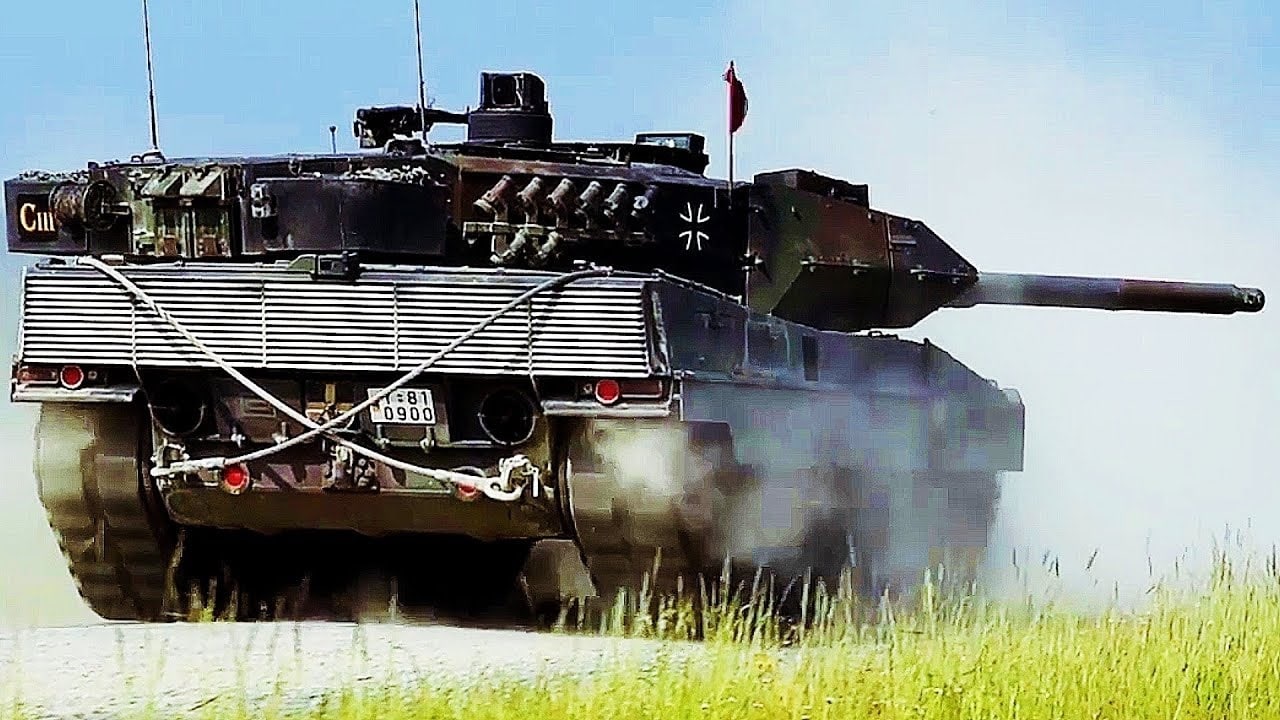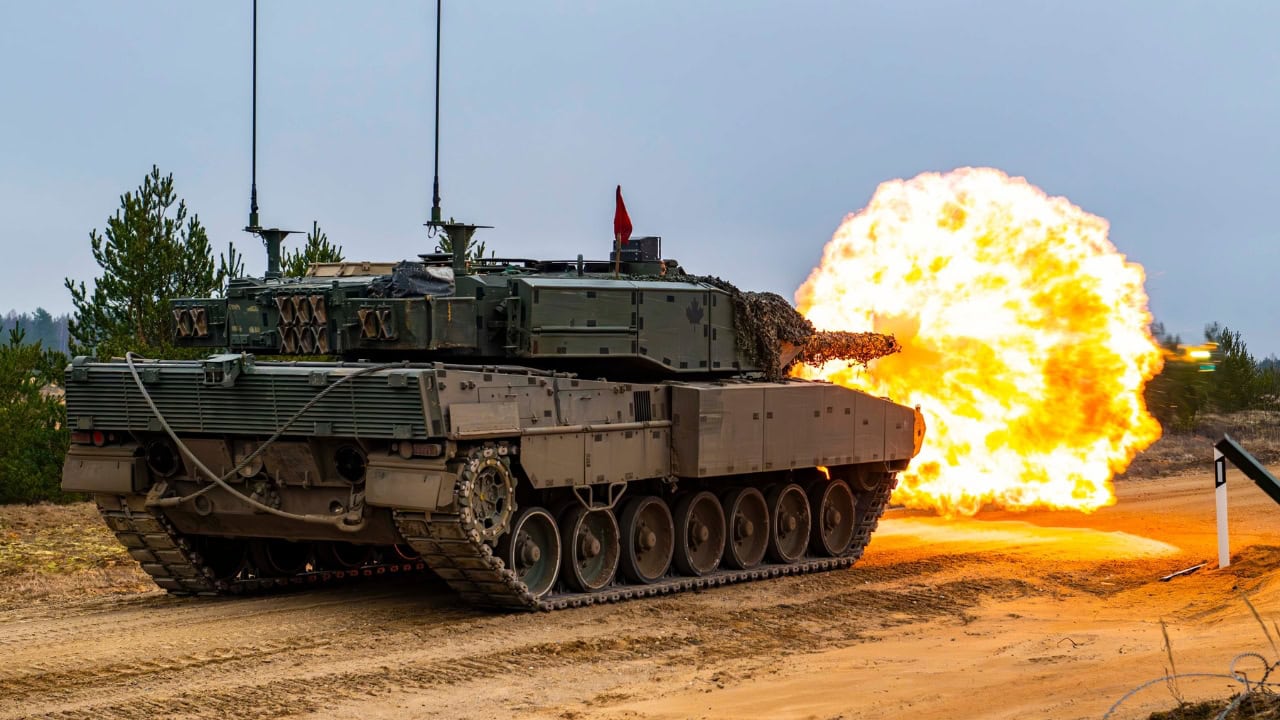While many in the coming days will be summarizing the key moments of the three years of the Russia-Ukraine War, I will focus on the core reasons the war started, reveal what could have been done to prevent it, and point out how key Western and Ukrainian leaders refused every opportunity to bring this destructive war to an end since 2022.
The key lesson learned: the abject failure of Western diplomacy is the primary reason why we’re “celebrating” the three-year anniversary of a war that should never have been fought.
The Russia-Ukraine War: It Should Never Have Started
Nearly three years ago, I went on Fox News to give my assessment of the Russian invasion of Ukraine. In that segment, I pointed out to host Trace Galligher that the reason for the invasion was the prospect of NATO expansion into Ukraine. Even as the invasion was mere hours old, I argued that if the Ukrainian government “would finally just make a deal that they’re not going to go into NATO, that will probably be enough for” Putin to end the war.
In fact, three days earlier, I wrote in these pages that “the only thing that has any prospect of forestalling war at this point is for the West to acknowledge the plain reality that Ukraine is never going to be invited into NATO.” Ignore these realities, I continued, “by stubbornly clinging to the fiction NATO’s door remains open to Kyiv, and the U.S. will likely reap rotten fruit: potentially tens of thousands of Ukrainian people dying in an avoidable war, NATO security damaged – and regardless of which choice NATO makes, Ukraine will remain outside of NATO.”
Now in 2025, the only part where I was amiss turned out that instead of “tens of thousands” of Ukrainians killed in a war that could have been avoided, the number is likely in the high hundreds of thousands. Yet now it is crystal clear that the same truth that existed three years ago is now even more firmly established: Ukraine will never be admitted into NATO.
NATO: The Spark for the Russia vs. Ukraine War?
Putin himself plainly revealed to the West as his forces entered Ukraine on February 24, 2022, that indeed it was NATO expansion that had driven Russia to invade. It had been the building up of pressure of years of “the eastward expansion of NATO, which is moving its military infrastructure ever closer to the Russian border” that spurred him to action, Putin claimed.
Moreover, he continued, “these past days NATO leadership has been blunt in its statements that they need to accelerate and step up efforts to bring the alliance’s infrastructure closer to Russia’s borders. In other words, they have been toughening their position. We cannot stay idle and passively observe these developments.” NATO expansion, Putin concluded, was a threat “to the very existence of our state… It is the red line which we have spoken about on numerous occasions. They have crossed it.”
These stepped up efforts to which Putin referred likely included then-Secretary General Jens Stoltenberg’s declaration two months prior when he said, standing alongside Zelensky in Brussels, that Stoltenberg himself had been “present at the NATO Summit in Bucharest in 2008, when all Allies agreed that Ukraine will become a member of NATO. And we stand by that decision.”
Or one month before the invasion when Stoltenberg held a press conference with Ukrainian Deputy Prime Minister Olga Stefanishya when she defiantly vowed Ukraine had a “sovereign right to choose our own security arrangements including treaties and alliances.” While such brash public statements played well at the time and were hailed by almost the entirety of the West as brave and strong statements, they were both foolish and untrue.
Ukraine Was Never Joining NATO
The reality is, Ukraine was never going to be let in to NATO, not then, not ever.
The reasons were abundant and clear. NATO’s own documents declare that to be admitted into the alliance, a nation must meet stringent criteria. Fundamentally, as should be self-evident, NATO should not take on new members unless their inclusion into the alliance would improve the security of the existing members of the alliance.
On that point alone, no rational person within the then-30 member alliance would have agreed to invite Ukraine. In February 2022 Ukraine was embroiled in an eight year civil war between the east of the country and the western and central parts. They had a very antagonistic relationship with Russia, that had spanned decades before the war, and was in no small part responsible for the eruption of the civil war in 2014. Why would any Alliance country tie its national security, especially the Article 5 guarantees, that could drag them into a potentially nuclear conflict with Russia?
It’s a rhetorical question. They wouldn’t then, they won’t now, and they never will.
That reality was always known behind the scenes, even by leaders such as Stoltenberg and the Biden Administration. Yet they all, to eventually include most of the heads of state and senior government officials from numerous NATO members, kept up the promises to Ukraine of eventually membership. Recall last summer at the gala in Washington, DC to celebrate the 75th anniversary of the alliance, the final Summit Declaration vowed “As Ukraine continues this vital work, we will continue to support it on its irreversible path to full Euro-Atlantic integration, including NATO membership (emphasis mine).”
The balance of power between the Ukrainian side (and all its contributing allies) and the Russian side (and its supporters) has always been overwhelmingly in Russia’s favor. Any rational, unemotionally actor would have recognized – from before the war had started – that it would be futile to fight a war that couldn’t be won. It would seem to be rational that no NATO leader would publicly offer eventual membership to a state that all know they will never actually invite, because these leaders understand that to do so would put their own lands at risk of a conventional or nuclear war with Russia.

NATO Leopard Tank. Image Credit: Creative Commons.
Yet so many Westerners (and Ukrainian leaders) still, to this day, refuse to acknowledge basic math, elementary assessment of the overwhelming advantages on the Russian side, and above all the observed failures of three years of public failures in both the diplomatic and military fields. And who has been the bill-payer for this obstinacy? The Ukrainian state and people. Millions may already have died or been wounded; tens of millions have fled the country; whole sections of its country have been laid to waste, likely never to return.
Trump has entered the diplomatic scene like a bull in a China closet and angered many in the West. But so far, he is the only one that seems to acknowledge math and combat realities, and appears intent on ending the war, quickly, by the least offensive terms possible (and because of the foolishness of Western leaders over the past three years, what’s possible will be very ugly). For the sake of the Ukrainian people still alive, I pray he is successful. Because if he is not, as hard to believe as it may be, things could get worse. A lot worse.
About the Author: Daniel L. Davis
Daniel L. Davis retired from the U.S. Army as a Lt. Col. after 21 years of active service and is now a 19FortyFive Contributing Editor, writing a weekly column. He was deployed into combat zones four times in his career: Operation Desert Storm in 1991, Iraq in 2009, and Afghanistan twice (2005, 2011). Davis was awarded the Bronze Star Medal for Valor at the Battle of 73 Easting in 1991 and awarded a Bronze Star Medal in Afghanistan in 2011. He is the author of The Eleventh Hour in 2020 America. Davis gained some national notoriety in 2012 when he returned from Afghanistan and published a report detailing how senior U.S. military and civilian leaders told the American public and Congress the war was going well while, in reality, it was headed to defeat. Events since confirmed his analysis was correct. Davis was also the recipient of the 2012 Ridenhour Prize for Truth-telling. Currently, you can find Lt Col. Daniel Davis on his YouTube channel, “Daniel Davis Deep Dive,” where he analyzes war, national security, politics, foreign policy, and breaking news with expert commentary.

